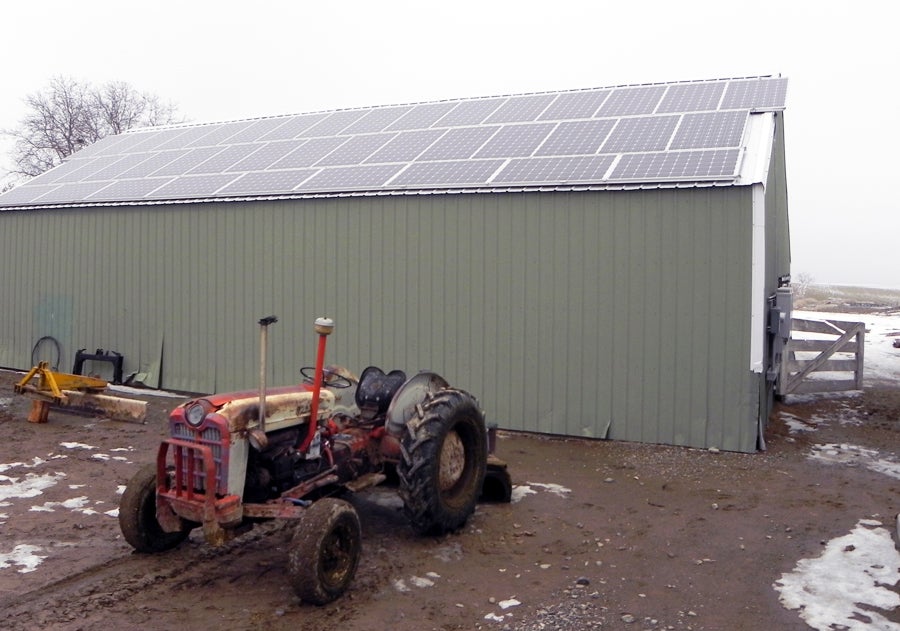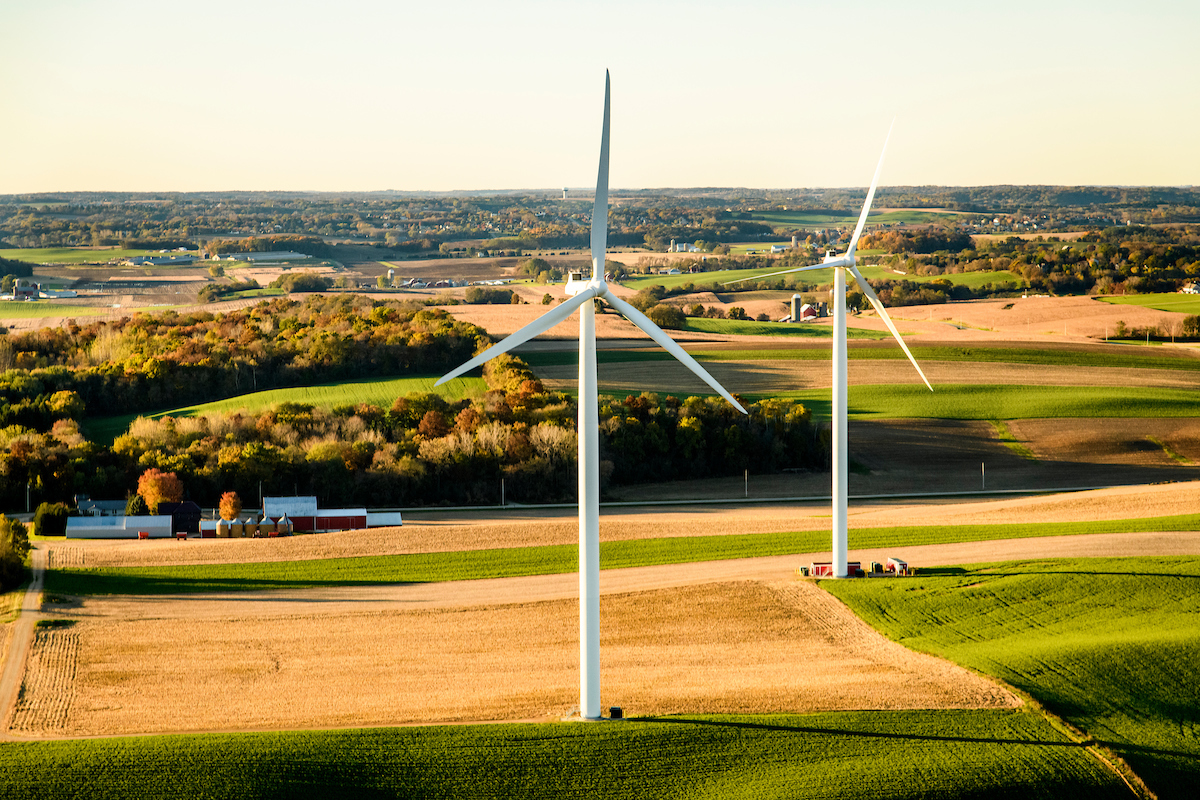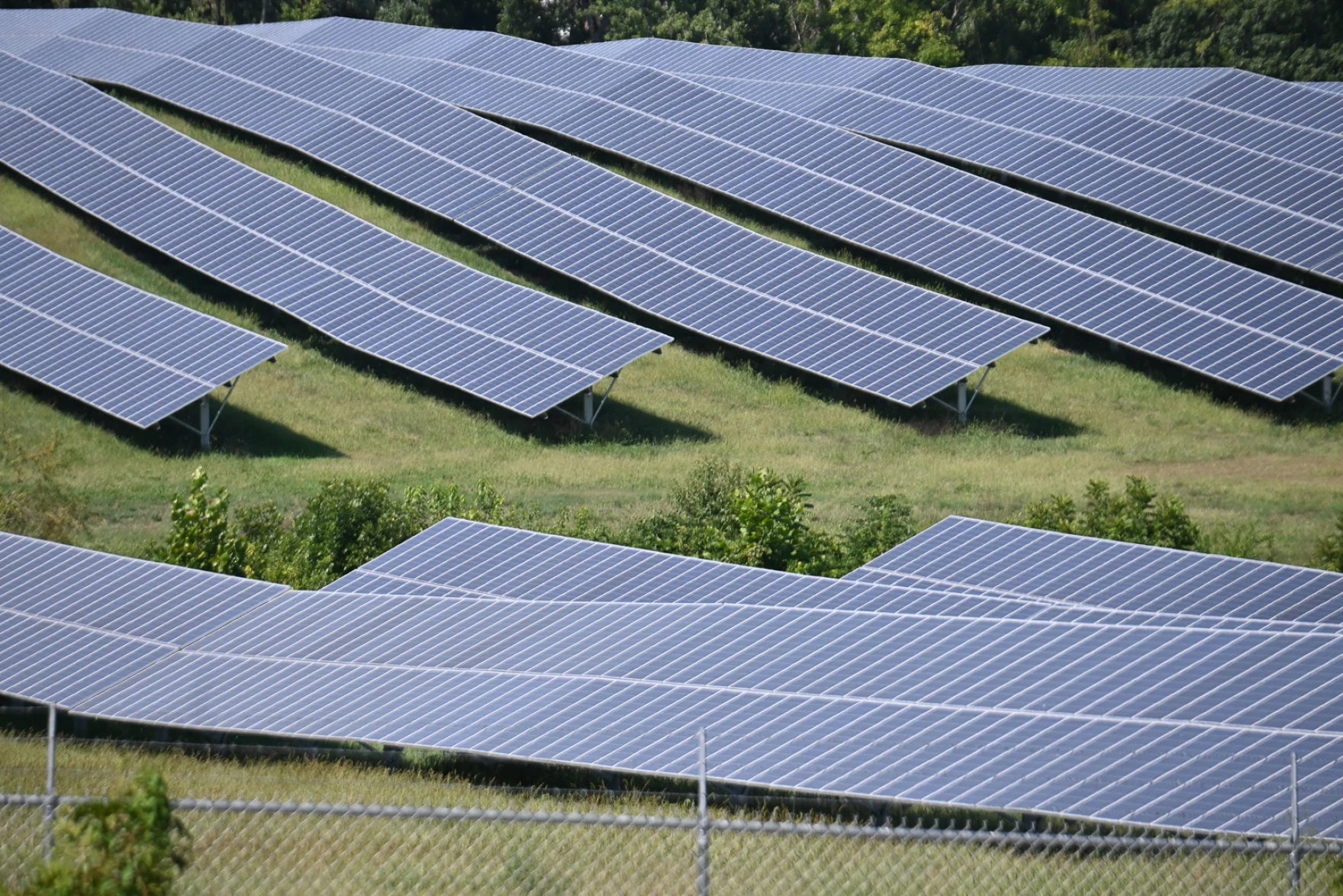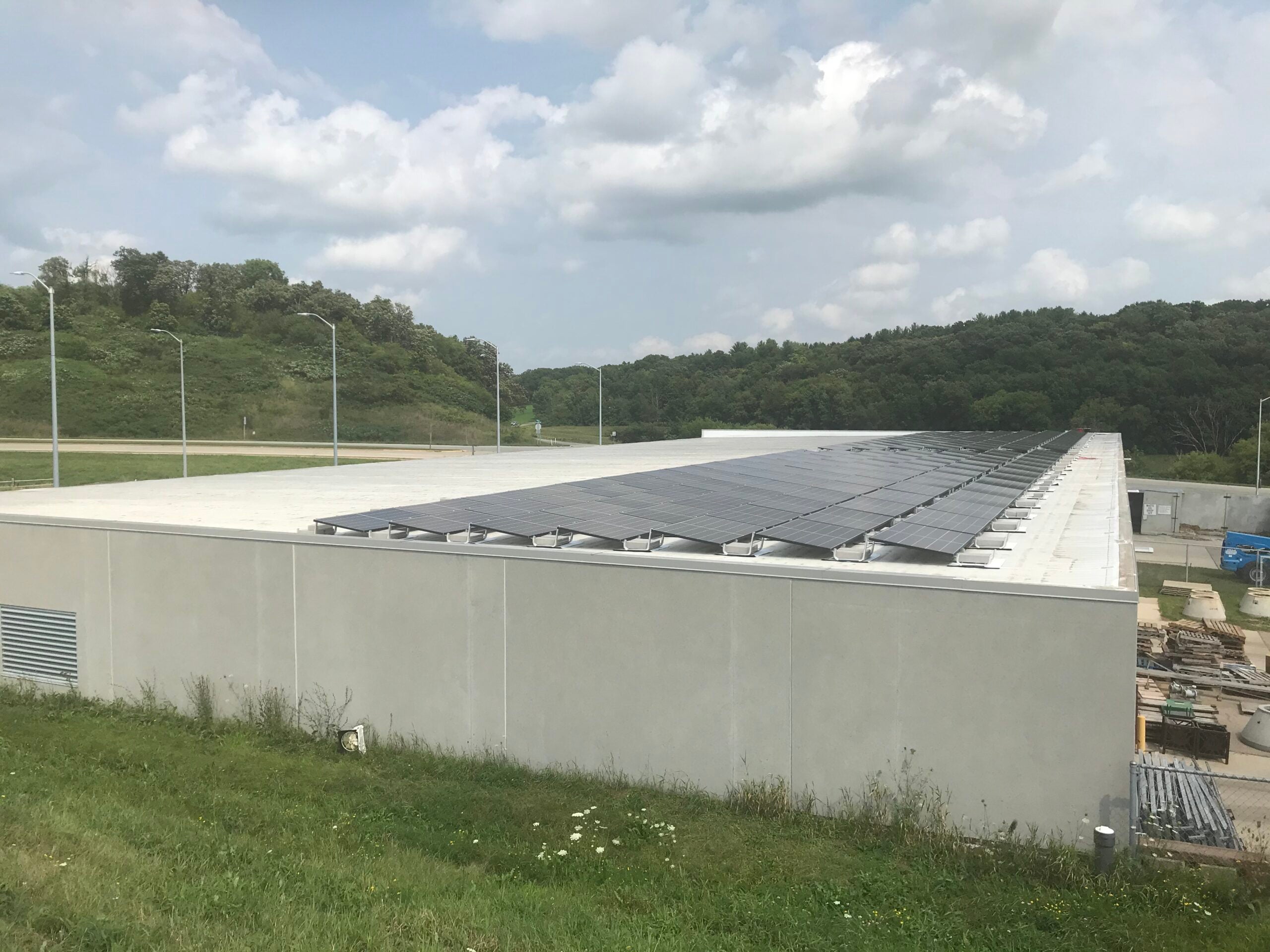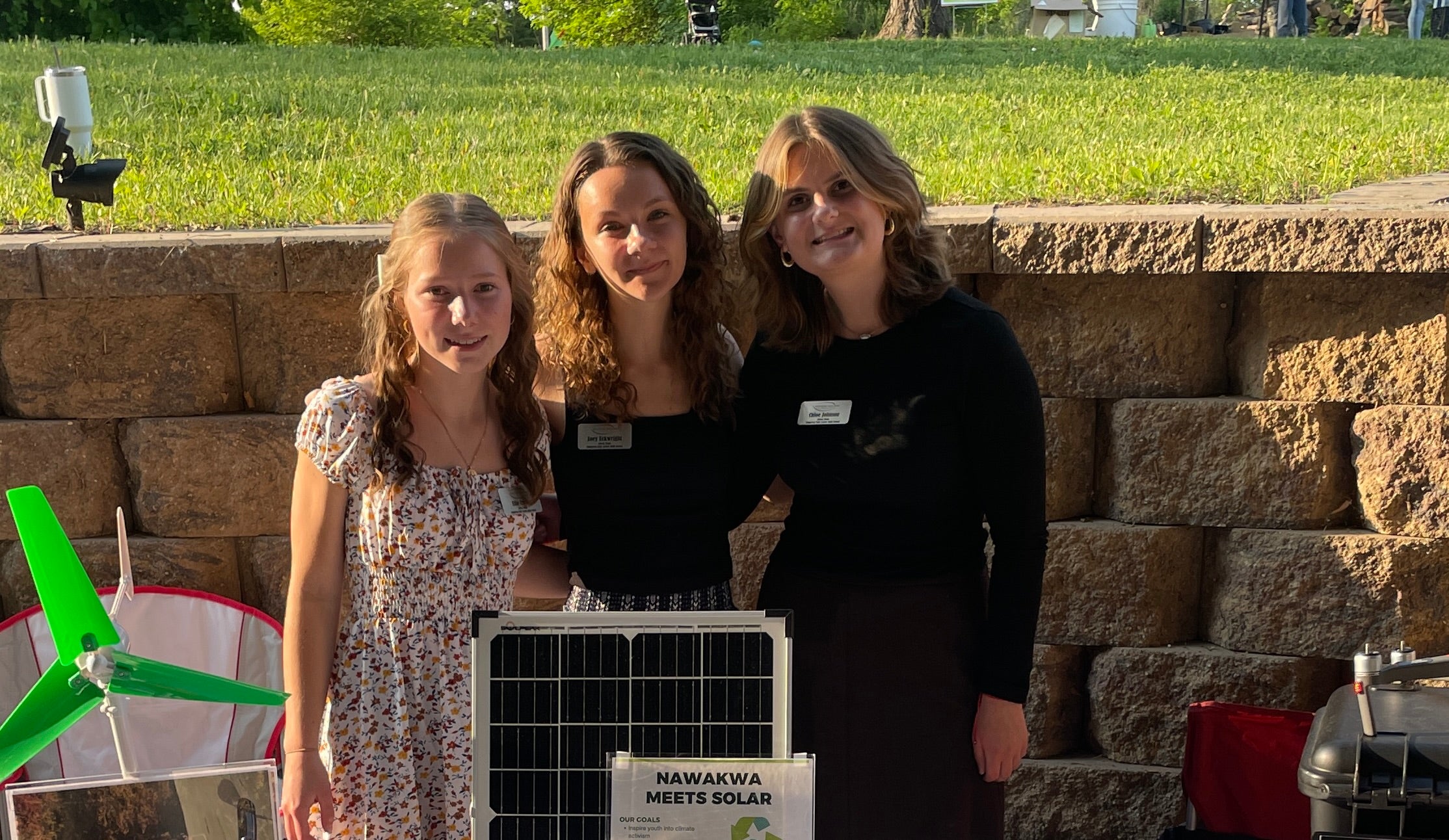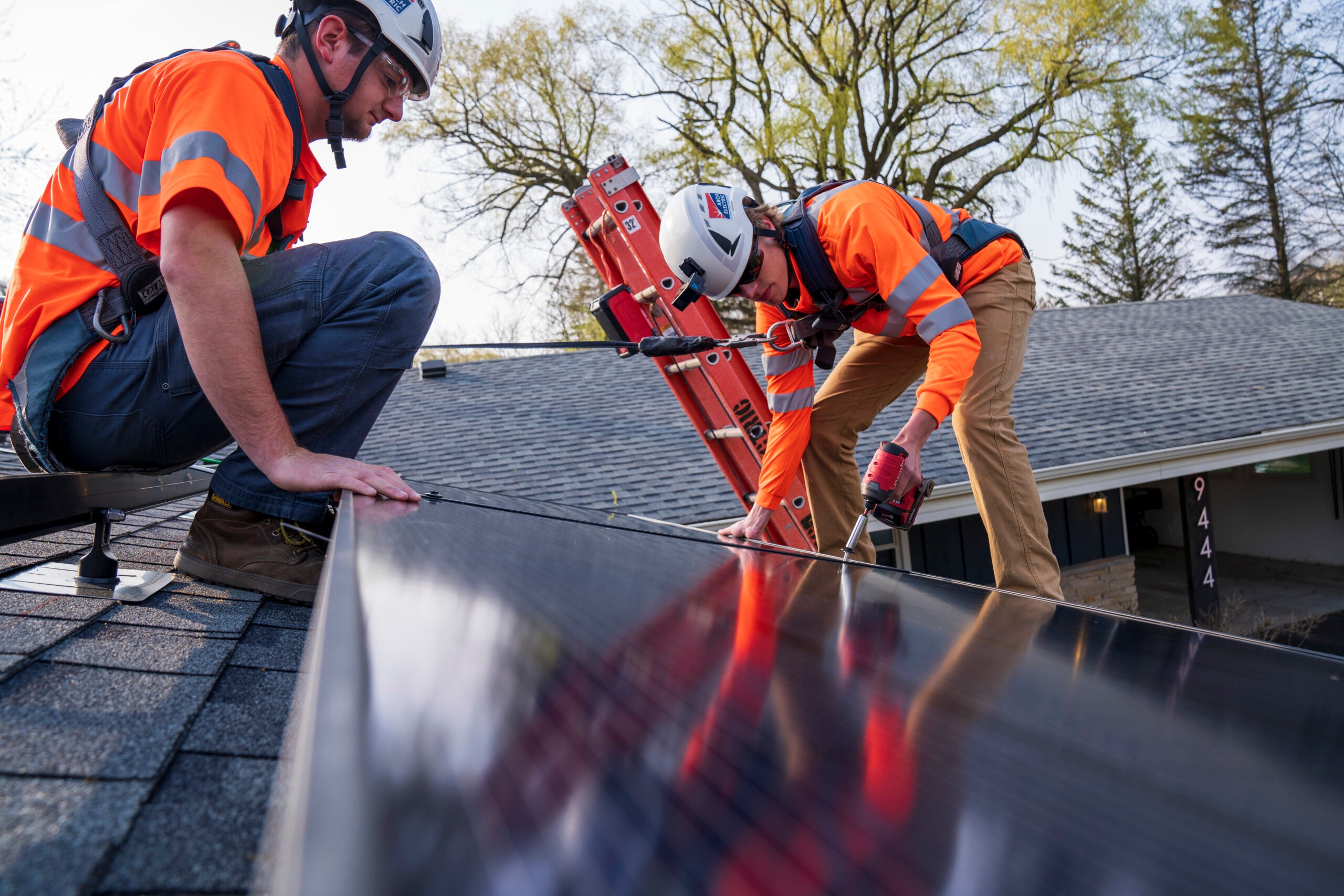Jon Levendoski is a fifth generation dairy farmer who operates a small farm in Genoa with around 50 cows. His parents still own the family farm.
Years ago, Levendoski’s parents were interested in getting a solar installation on the property but it wasn’t financially feasible.
Then, they met with Ethos Green Power Cooperative, a co-op that helps provide solar power installations in rural areas surrounding Viroqua, at the Vernon County Fair in September 2023.
News with a little more humanity
WPR’s “Wisconsin Today” newsletter keeps you connected to the state you love without feeling overwhelmed. No paywall. No agenda. No corporate filter.
Levendoski said Ethos Green Power explained there was money available for solar installations through the U.S. Department of Agriculture’s Rural Energy For America Program, or REAP, funded primarily through the Inflation Reduction Act of 2022.
He said Ethos helped crunch the numbers for a solar installation on the farmhouse his parents live in, and he asked the co-op to also look at the cost for the farm.
“It turned out it wasn’t feasible as a residential product, but the money that I could get through REAP, through tax incentives and through Focus on Energy grants meant that for the farm, it’s virtually a free project,” Levendoski said. “It’ll have a few months for payback, but it’s virtually a free project for us.”
According to the USDA, the farm was awarded a $25,495 REAP grant to help pay for the solar installation, which will provide enough electricity to replace 100 percent of the farm’s energy use each year. It’s expected to save the farm an estimated $2,987 annually.
“We’ve always had a philosophy where we produce milk at as low a cost as possible,” Levendoski said. “We’re pretty low technology around here, but when there’s opportunities to save money, you take it.”
While he cares about the environment and being a good steward of the land, that wasn’t the primary motivator behind moving forward with the solar installation, said Levendoski, who lives in another farmhouse on the property with his wife and their children.
“All of the stuff that we have done, which looks like I’m trying to save the planet, is really us trying to save money and make sure that we still have a sustainable farm for the next generation — if they choose to farm it,” he said. “I have four kids. I don’t know if they want a farm, but I want there to be a farm here, if that’s what they decide they want to do.”
The grant for Levendoski’s farm is one of 12 grants and one loan, announced this week by the USDA, that will allow 13 rural Wisconsin businesses to install renewable energy systems or become more energy efficient. The funding announced this week totals roughly $24 million.
The REAP projects announced range from solar arrays, like on Levendoski’s farm, to grain drying systems and a dairy manure anaerobic digester.
Julie Lassa, USDA’s Rural Development Wisconsin state director, said the REAP program existed before the Inflation Reduction Act, or IRA, was signed into law, but the funding from that legislation helped supercharge it. She says the REAP program has seen record demand in response to funding from the IRA.
“That money was specifically geared towards helping rural business owners and farmers with adopting either more renewable energy or making their processes more energy efficient,” she said. “That type of investment is important and as a recognition that rural communities and the people who live there, have an important role.”
Since 2021, the REAP program has invested more than $66.7 million for more than 233 projects in Wisconsin, according to the USDA.
The final REAP funding availability from the IRA is accepting applications in two windows with deadlines on Dec. 31 and March 31, 2025.
Lassa said she isn’t sure what the future funding for the program could look like, but it has been one of USDA’s most popular rural development programs and she anticipates it will continue.
“We’ll see what (happens) when the new Congress is sworn in and a budget is introduced and signed into law,” Lassa said. “We’ll know more. At this point, we’re not really quite sure how much funding there will be or what the grant mix will look like.”
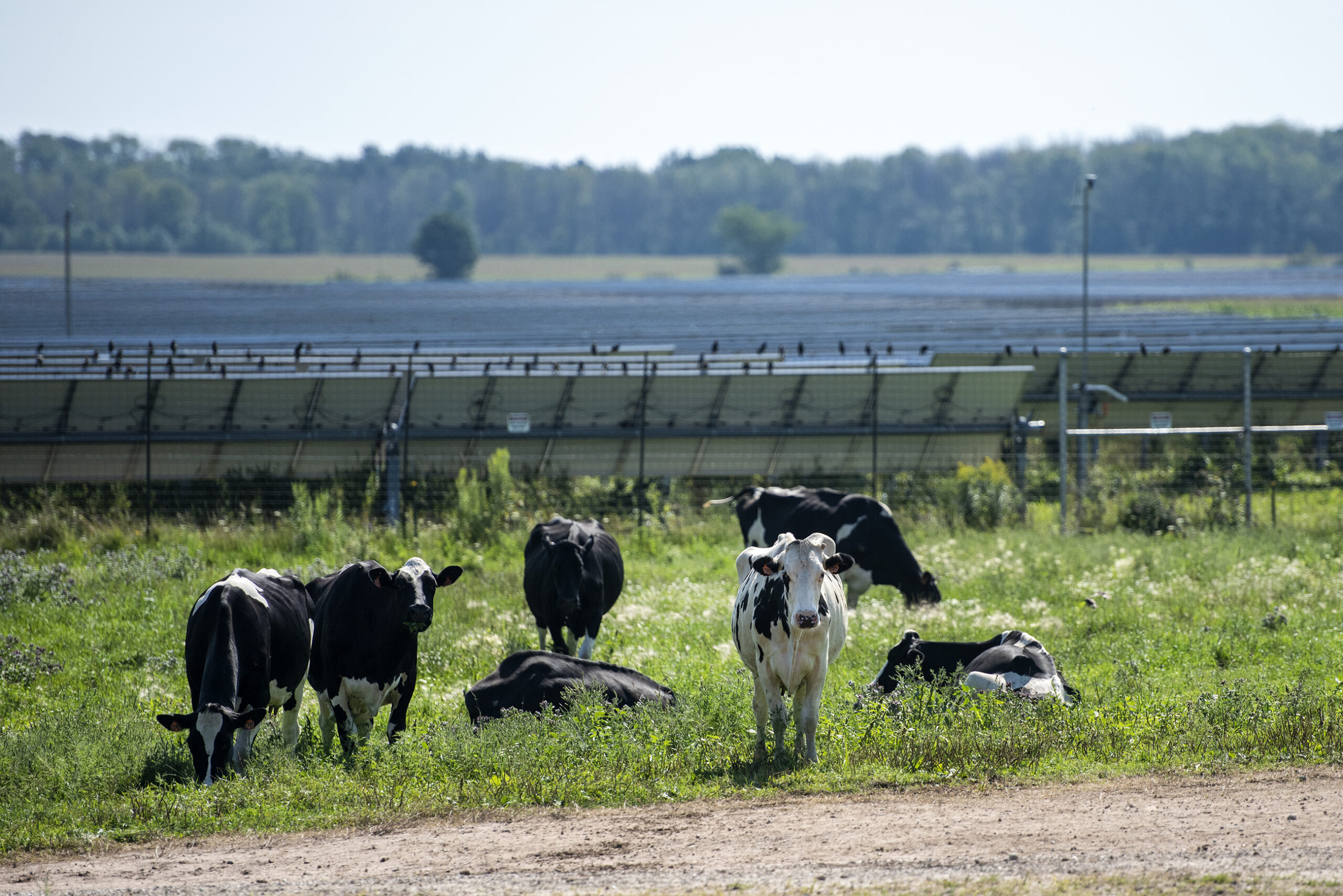
Beyond REAP, IRA had big benefits for rural communities
The IRA also established the Empowering Rural America Program, which is providing nearly $573 million in grant and loan funding to La Crosse-based Dairyland Power Cooperative.
The funding will support Dairyland’s efforts to develop 1,080 megawatts of renewable energy and reduce greenhouse gas emissions. The cooperative plans to build on the federal funds for a total investment of $2.1 billion. According to the USDA, Dairyland’s electric rates are expected to be 42 percent lower over 10 years than they would have been without federal funding.
But the IRA also does more than helping build clean energy projects, said Amy Barrilleaux, a spokesperson for the nonprofit Clean Wisconsin. She said the law helps families afford rooftop solar and electric vehicles, as well as insulate their homes.
For farms, she said it provides funding to support conservation programs that have been “chronically underfunded.”
“These programs are now getting a big injection of funding through the IRA, and that’s a big deal for farmers,” Barrilleaux said. “Wisconsin is getting more than $21 million to the IRA to help our dairy farms cut emissions and improve water quality on and around their farms.”
Future of IRA unclear
The future of funding for the REAP program beyond 2025 isn’t the only thing that’s unclear. The law that supercharged it could also face challenges.
On the campaign trail, President-elect Donald Trump pledged to rescind any “unspent” funds under the Inflation Reduction Act, but he’d need Congress to do it.
According to CNN, nearly 80 percent of the $243 billion-worth of Inflation Reduction Act projects either completed or under construction nationally are in Republican congressional districts.
The REAP funding announced this week will help support rural development in Wisconsin congressional districts held primarily by Republicans.
They include Republican U.S. Reps. Tom Tiffany’s district in northern and northwest Wisconsin, Derrick Van Orden’s district in western Wisconsin, Tony Wied’s district in northeast Wisconsin, Glenn Grothman’s district in east-central Wisconsin and Democratic U.S. Rep. Mark Pocan’s district in south-central Wisconsin.
Grothman and Tiffany’s offices did not immediately respond to requests for comment regarding whether they support repealing the Inflation Reduction Act.
In a statement, Van Orden questioned how the IRA could be repealed when “70 percent of the law’s budget for climate-focused grants has already been spent?”
That number tracks with reporting from Reuters, which found $90 billion out of the law’s $120 billion for grants to climate, clean energy and other projects had been awarded by the Biden administration as of September.
“As for project spending in Republican districts,” Van Orden added, “I look forward to working with the incoming Trump administration to ensure rural Wisconsin and rural America receive the funding they need while being good stewards of taxpayer dollars.”
Meanwhile, a statement from Wied didn’t directly say he would support repealing the IRA, and blamed the law for driving inflation.
“I fully support President Trump’s economic plan and it’s time to get serious about ending reckless government spending,” he said.
Barrilleaux with Clean Wisconsin said it’s easier to pitch repealing the IRA than it is to actually move forward with.
“When you look at all the good it’s doing, it’s going to be really hard to do that,” she said.
Wisconsin Public Radio, © Copyright 2025, Board of Regents of the University of Wisconsin System and Wisconsin Educational Communications Board.

